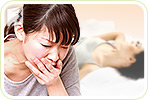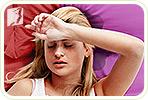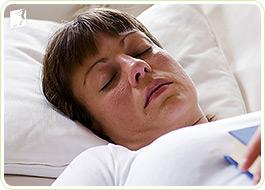
Night sweats are one of the most common symptoms of menopause, with as much as 75% of women experiencing them alongside hot flashes. In fact, night sweats are triggered by the same body processes as hot flashes; they just happen during sleep. While night sweats can disrupt sleep, they are usually a symptom of menopause and not of an underlying condition.
Keep reading to learn more about night sweats.
Definition of Night Sweats
Night sweats, sometimes referred to medically as "sleep hyperhidrosis," are episodes of sweating during sleep that can result in clamminess and discomfort. Night sweats can range in intensity and frequency, but severe episodes disrupt sleep and wake up the sufferer in the middle of the night, potentially resulting in daytime fatigue, insomnia, and other sleep-related issues.
The principal cause is hormonal imbalance. Menopausal night sweats usually follow a pattern, which is different for each woman, whether she experiences them multiple times a night or just once a week.
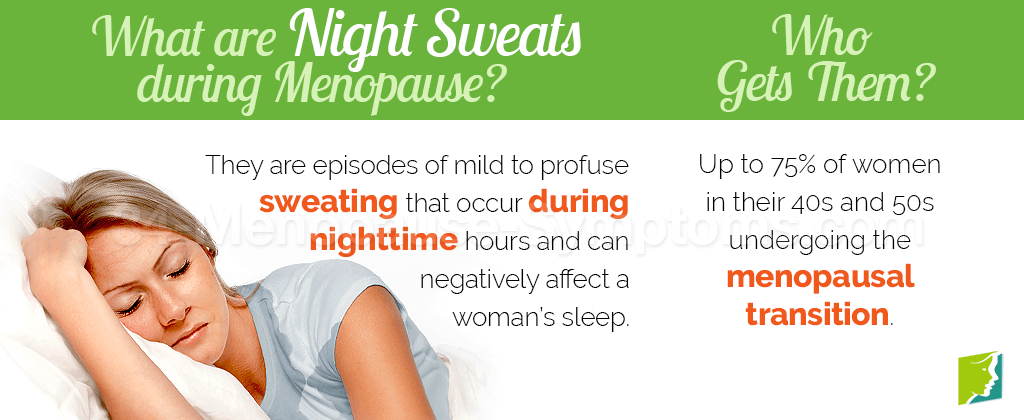
Symptoms of Night Sweats
The signs and symptoms of night sweats are similar to hot flashes, but they happen during sleep. Most women with night sweats have mild to moderate episodes, though approximately 25% of them experience severe episodes.
- Sudden, intense heat
- Interrupted sleep
- Heart palpitations
- Perspiration
- Nausea
- Headaches
- Flushing
- Chills
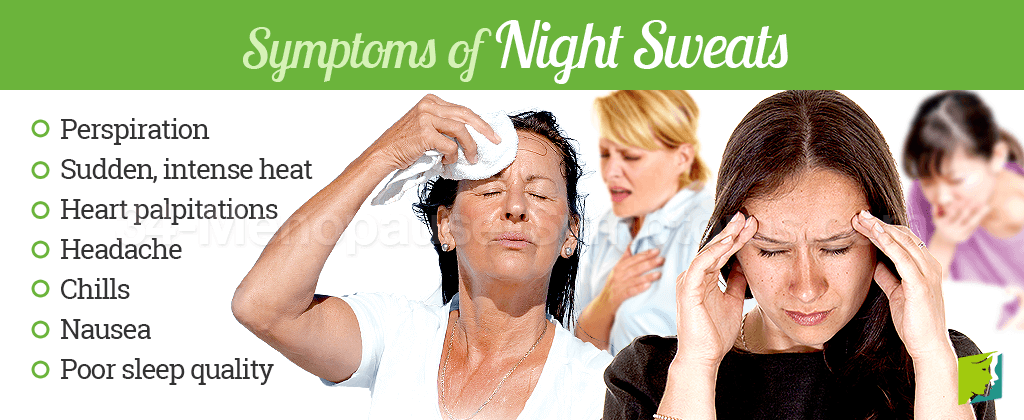
The symptoms of night sweats can drastically disturb sleep patterns, making it difficult to get a good night's rest. Because of this, women who suffer from night sweats often experience:
- Insomnia
- Sleep disorders
- Trouble concentrating
- Exhaustion
- Irritability
- Heightened levels of stress
Some women are more likely to experience night sweats than others. Keep reading to learn more.
Who Is Affected?

Women in perimenopause are most likely to experience night sweats. Perimenopause encompasses the span of approximately 2 - 10 years before a woman's last period that women typically go through in their forties and fifties. About 20% of women between the ages of 40 - 55 who still menstruate experience night sweats.
Women are affected differently
Several different studies have shown that different factors - such as age and range - can help predict a woman's likelihood of experiencing night sweats during the menopause transition.
Age
In one large study, it was observed that younger women, toward the start of the menopause transition, are more likely to have night sweats than older women. In fact, a separate study found that only 10% of women above the age of 64 experience night sweats.Race
Race is also a potential influence in the experience of night sweats. Research has shown that 75% of Caucasian women experienced night sweats, and black women are more likely to have this symptom than Caucasian or Hispanic women. Asian women are less likely to report night sweats than women of other races.Now that the basics have been covered, continue reading to better understand the causes of night sweats in menopausal women.
Sources
- Boston Women's Health Collective. (2006). Hot Flashes, Night Sweats and Sleep Disturbances. Our Bodies, Ourselves.
- National Health Service UK. (2014). Menopause: five self-help tips. Retrieved April 7, 2016, from http://www.nhs.uk/Livewell/menopause/Pages/Menopauseselfhelp.aspx
- National Institute on Aging. (2015). Signs of the Menopausal Transition. Retrieved April 7, 2016, from https://www.nia.nih.gov/health/publication/menopausetime-change/signs-menopausal-transition
- Thurston, R.C. & Joffe, H. (2011). Vasomotor Symptoms and Menopause: Findings from the Study of Women's Health Across the Nation. Obstetrics and Gynecology Clinics of North America, 38(3), 489-501. doi: 10.1016/j.ogc.2011.05.006

